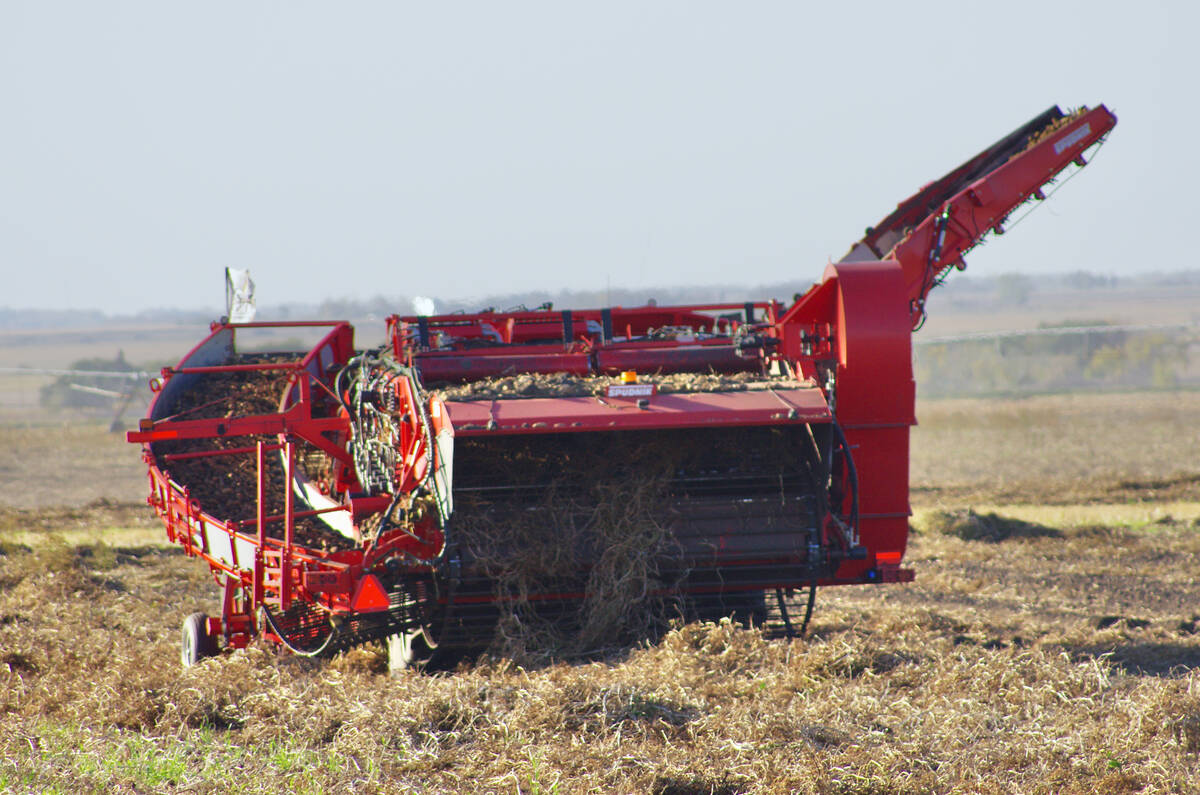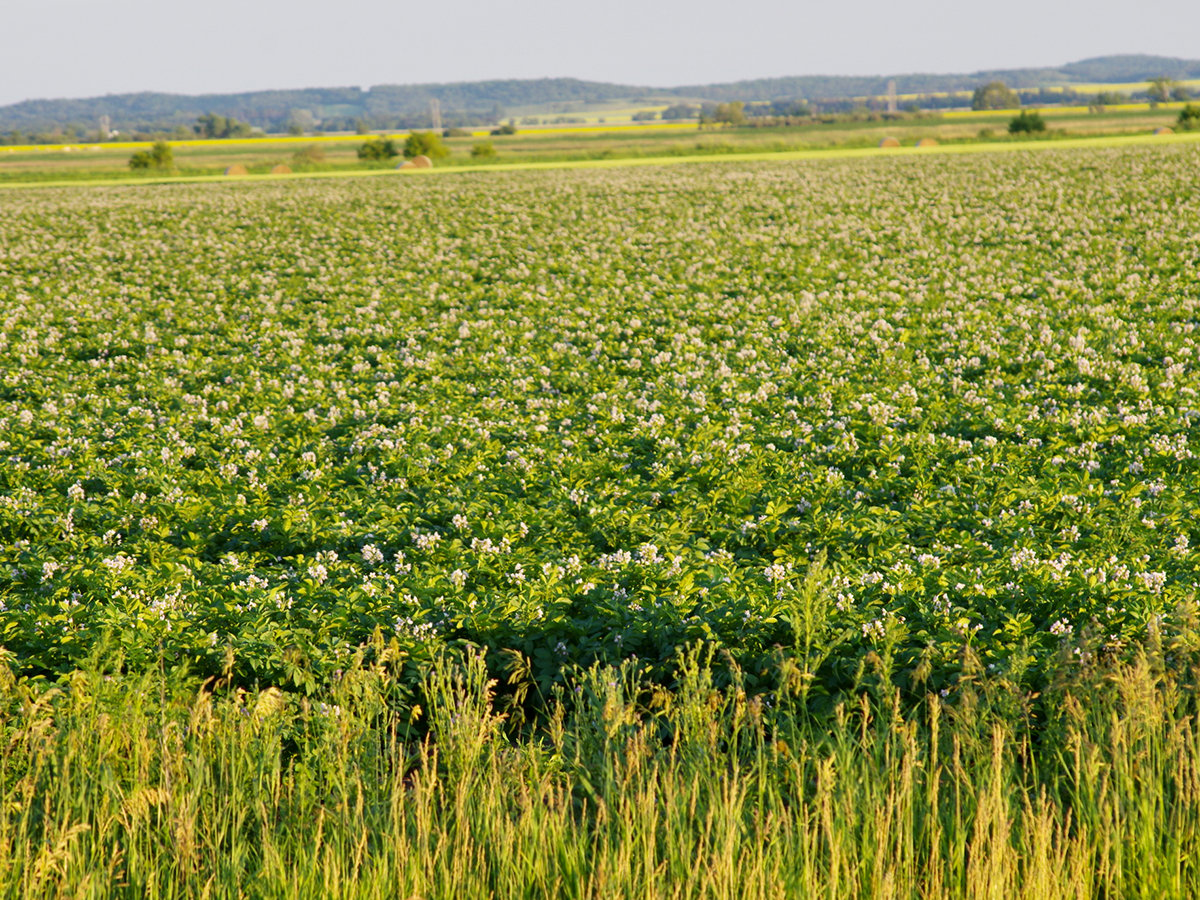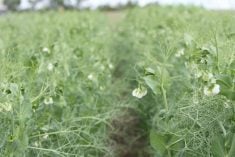Glacier FarmMedia – Manitoba’s potato acres look to be getting a shock this year, to the dismay of farmers for whom the high-value crop was a lynchpin of their seeding plans or who have seed potatoes still in storage.
Anecdotes of processors trimming their producer contracts filtered through the industry and news headlines earlier this spring, followed by reports of seed potato sales falling through as process potato producers no longer needed the seed.
In one article posted by CBC in late March, seed potato producer Mark Peters of Spruce Drive Farms near Portage la Prairie cited his own customers recently calling to cut orders. He further told CBC that he’s heard anywhere from a 10 per cent cut to total cancellation of orders.
Read Also

Agritechnica Day 3: Hybrid drive for a combine, data standards keep up to tech change and tractors of the year
Agritechnica 2025 Day 3: Hybrid drive for a combine, data standards keep up to tech change and tractors of the year.
Potatoes and potato products are one agricultural sector that could be hit hard by United States tariffs in Manitoba. Prepared potatoes were among Manitoba’s top five agri-food export commodities last year — almost exclusively to the U.S.
It has so far been difficult to confirm how deeply processors are cutting contracts. But it’s a story that the United Potato Growers of Canada have also heard.
The industry group’s general manager, Victoria Stamper, says tariffs and uncertainty have dominated her conversations with growers nationwide.
“Even if the contract negotiations haven’t been completed, the volume decreases have been announced,” she said.
It isn’t just about the 25 per cent tariffs on Canadian goods that have been a months-long tug of war between Canada and the U.S. (and for which exemptions for products compliant with the Canada-U.S.-Mexico Agreement are set to run out April 2), although those are weighing on the industry. Stamper also pointed to surplus potatoes from 2024 and dropping French fry demand.
McCain Foods has been making adjustments across its North American supply network in the face of a decline in consumer demand, and economic and tariff uncertainty, said Charlie Angelakos, the company’s vice-president of global external affairs and sustainability, in an e-mail to the Manitoba Co-operator March 27. The company did not say by how much they are cutting contracted acres.
“We recognize that changes to grower contracts impact our partners, and these decisions are not taken lightly. We are communicating directly with affected growers to provide clarity and support as we navigate this evolving landscape,” Angelakos wrote, adding that McCain will “assess and adjust” their supply strategy as the market improves.
J.R. Simplot, Manitoba’s other major potato processor, did not respond to requests for comment.
A representative from the Keystone Potato Producers Association declined to comment, citing active negotiations between the organization and processors.

Seed potatoes in crossfire
Russell Jonk, one of the names behind seed potato producer Swansfleet Alliance near Swan Lake, said a reduction of planted process potatoes this spring would spill over into huge negative impacts across seed potato farms in Manitoba, Those farms will be left with up to millions of dollars worth of produce that no longer has anywhere to go and, unlike other annual crops — which have a much longer shelf life in the bin —the clock is ticking when it comes to seed potatoes.
“Seed cannot be held over and planted the next year,” wrote Jonk, who is also president of the Seed Potato Growers Association of Manitoba, in a statement. “Any seed crop that is not needed for planting this spring will have to be composted or otherwise disposed of and has almost no value.”
Jonk estimates that the province’s seed potato excess for 2025 might be anywhere from 15 to 20 per cent.
“Unfortunately, because of economic, political and other factors, it looks like right now Manitoba seed potato growers have too much product and no market for it,” he said. “Losses in income could be real and very substantial and will vary widely from farm to farm.”
Exporting seed is also not an option, since other areas in North America have also seen reductions in acreage.
“Programs like crop insurance don’t work for these types of marketing risks either, so the burden could end up being placed on individual farms,” he said.
In the meantime, Manitoba potato producers are left grappling with uncertain waters as they attempt to navigate the growing season. Sudden tariff changes, such as the abrupt pivots seen in early March when U.S. tariffs were briefly in full force, and spring weather could still impact planted potato area and, thus, how much seed producers need, Jonk noted.
It’s also hard for seed potato farms like Swansfleet to figure out how many potatoes they, themselves should plant this year, with such uncertainty over 2026 seed potato demand.
“These decisions need to be made soon and could involve a great deal of speculation as it seems we are not operating in a ‘business-as-usual’ environment,” Jonk said.
Searching for optimism
The scale of growth in the Prairie potato sector might offer some hope. One industry representative noted that the capital investments that companies like McCain, Simplot and Cavendish Farms have made to expand their processing plants in Manitoba and Alberta is substantial, and hard to walk away from.
There is also the matter of exchange rate. Canada’s dollar is worth 70 cents of the U.S.’s. Even with the tariffs, the balance sheet may come out in favour of Canadian-grown and Canadian-processed potatoes and potato products.
But there is no getting away from the importance of the U.S. market to the Canadian potato sector.
A lot of Manitoba potatoes end up in the U.S. after being processed at the province’s major potato plants in Carberry and Portage la Prairie.
The province sent $771 million worth of prepared potatoes (which includes French fries) to the U.S. in 2024, representing 95 per cent of all prepared potato exports that year, according to a trade update from Manitoba Agriculture. That ‘prepared potato’ number further accounted for 93.3 per cent of all Manitoba’s potato and potato product exports.
Manitoba is also among the top potato-growing provinces in Canada. Last year, 75,800 acres out of Canada’s over 386,200 acres of harvested potatoes came from Manitoba, behind only Prince Edward Island.
Nationwide, Canada exported $2.4 billion worth of frozen potato products, with the U.S. accounting for 91 per cent of trade, $48 million worth of seed potatoes, with 96 per cent headed to the U.S., and $493 million in fresh potatoes, 92.6 per cent were U.S.-bound.
Of the major potato-producing provinces, Manitoba is also at more of a disadvantage for alternate markets, Stamper suggested.
Alberta, for example, which harvested 73,000 acres (29,542 hectares) of potatoes last year, is closer to West Coast ports, and therefore Asian markets that frozen potato products might be diverted to, than Manitoba.
Manitoba is “kind of land-locked … to get to a port is kind of expensive,” Stamper said. “It’s obviously better for them to ship south.”
— With files from Robert Arnason
















